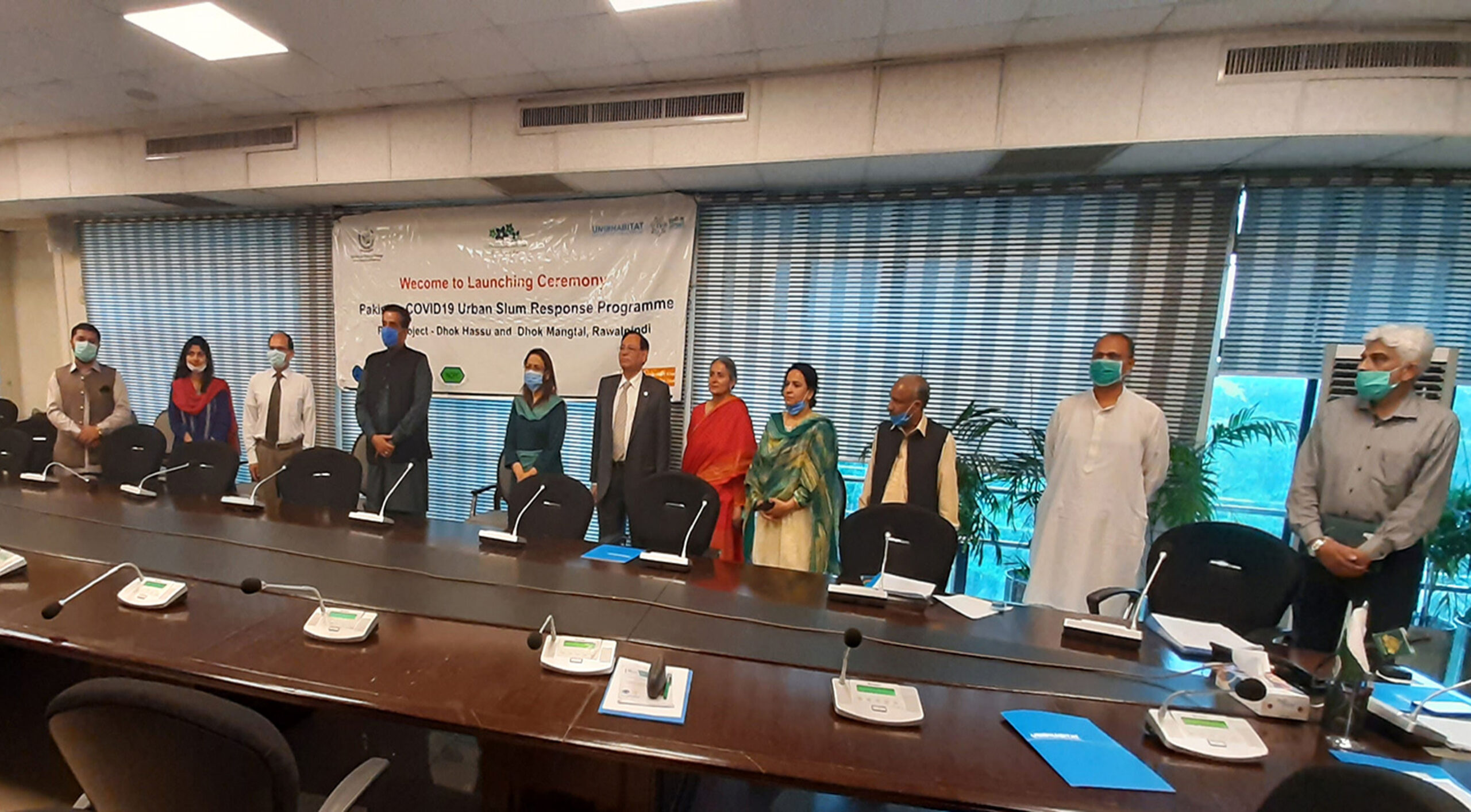COVID-19
Pakistan COVID19 Urban Slum Response Programme
UN-Habitat launched ‘Pakistan COVID19 Urban  Slums Response Programme’ (PCUSRP) in two urban slums of Rawalpindi with the objective to prevent spread of COVI19 in urban slums and empowering local communities to mitigate its economic impact in May 2020 which was concluded in July 2020. The pilot was launched by Advisor of the Prime Minister for Climate Change , Mr. Malik Amin Aslam.
Slums Response Programme’ (PCUSRP) in two urban slums of Rawalpindi with the objective to prevent spread of COVI19 in urban slums and empowering local communities to mitigate its economic impact in May 2020 which was concluded in July 2020. The pilot was launched by Advisor of the Prime Minister for Climate Change , Mr. Malik Amin Aslam.
The report of the pilot was presented by UN Habitat to the Advisor of the Prime Minister for Climate Change , Mr. Malik Amin Aslam and the implementing partners including Shehersaaz, Akhtar Hameed Khan Memorial Trust and National Cleaner Production Center (NCPC) in an event organized in Ministry of Climate Change.
The salient features stated that the programme focuses on the following major components:
- Awareness and Advocacy: creation of Virtual Community Coordination Platforms (VCCP) to effectively engage the community;
- Access to Preventive Measures and WASH facilities: Adoption of preventative measures to control spread of COVID 19 and ensure environmentally save collection and disposal of solid, liquid and hazardous waste;
- Provision of income generation opportunities and capacity building: Creation of income generation opportunities for the local communities through skill development and engaging them in the project activities;
- Rapid assessment of key challenges and issues of urban slums: Virtual Community Coordination Platforms (VCCP) will be used for detailed baseline assessment to identify vulnerabilities, challenges, existing capacity and community concerns for developing a full-scale follow-up programme.
The Key findings of the rapid assesmnet report PCUSRP Pilot Rapid Survey Report showed that 49 percent of the targeted area have to limited Water, Sanitation and Hygiene (WASH) facilities. In Dhok Hassu and Mangtal, approx. 20-30 percent are Afghan refugees. They do not have easy access to healthcare in public hospitals. In addition over a third of respondents – 37 per cent – said they had lost their jobs after a lockdown was imposed. The living conditions including housing and Waster, Sanitation and Hygiene (WASH) services poses health and environmental threat to the urban slum dwellers. Thus, there is a need to urgently initiate programmes focused on improvement of housing and WASH services in these areas to prevent COVID19 impacts. The assessment clearly brought out that the slums are the reservoirs and hot spots of COVID-19 which can lead to triggering disastrous consequences if not addressed timely.
